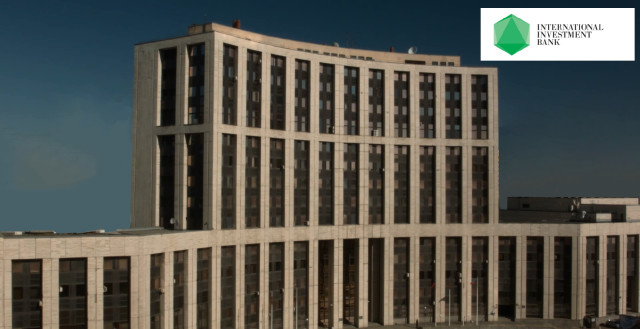Substantial growth in all areas – IIB published its IFRS financial statements for the first six months of 2016

The International Investment Bank (IIB) today published its financial results in accordance with the International Financial Reporting Standards (IFRS) for the first six months of 2016. The numbers reflect extensive growth of the Bank’s activities and successful expansion of its operations in all areas.
In the first half of 2016, IIB’s Assets increased by 14% from EUR 809m to EUR 922m, also driven by growth in the Net Loan Portfolio, which expanded by 36% from EUR 306m to EUR 416m. At the same time, the share of loans to customers rose to 70% of the Loan Portfolio compared to 54% at the end of 2015.
For the first time in more than 20 years, the IIB disbursed a loan to a Czech company – Pilsen Toll. Together with new loans to Bulgarian and Romanian clients, this led to an increase in the share of EU countries in the Loan Portfolio to 40% compared to 32% at the end of 2015.
The share of Asian borrowers in the Loan Portfolio made up 25% and Russia accounted for 16%. Meanwhile, loans in non-member countries represented 19%, reflecting the strategic efforts of the IIB to expand the geography of its operations, including through support of member countries’ exports.
As of June 30, 2016, there were no new overdue loans, with a positive impact on the NPL ratio, which fell from 4.7% to 3.5%.
Due to the growth in lending, interest income rose by 34% to EUR 16 million in the first half of the year compared to EUR 12 million in the same period of 2015. During the six months, IIB’s Net Income rose to EUR 5 million.
After an additional injection of EUR 10 million by Hungary, the combined share of EU countries in IIB’s Paid-in Capital reached 49%, exceeding those of other shareholders. Overall, IIB’s Paid-in Capital grew to EUR 313 million. Together with Net Income, in the six months this led to an increase in IIB’s Equity from EUR 398m to EUR 415m.
In May, the IIB signed its debut EUR 60 million syndicated loan from eight banks from six European countries. The syndication was over-subscribed and, consequently, the IIB was able to decrease the interest rate on the facility. Overall, IIB’s Liabilities rose from EUR 412m to EUR 507m in the period.
IIB’s capital adequacy according to Basel II continues to be on a very high level and represented 51% – well above international standards and IIB’s minimum of 25%. This, combined with Financial Leverage of 122%, reflects IIB’s conservative approach to risk management.
The Bank’s strong creditworthiness was reinforced by the reception of a BBB stable rating from S&P in June. This adds to the existing ratings of Baa1 (stable) from Moody’s, BBB- (stable) from Fitch and A (stable) from Dagong.
For the rest of the year, the IIB aims to continue expanding its activities – outpacing the market through active support of multilateral projects with member countries’ participation, syndicated lending and project finance, export-import operations and raising funding on member states’ capital markets. Nikolay Kosov, Chairman of the IIB Board, commented: “As a multilateral development bank, the IIB will continue addressing current tasks in the interests of its shareholder countries, while adhering to the most effective financial practices in managing its assets and liabilities.”
